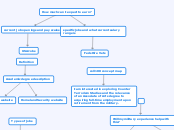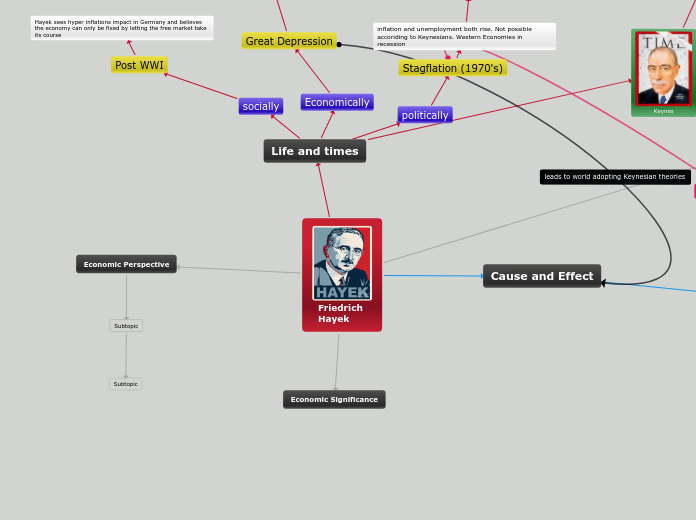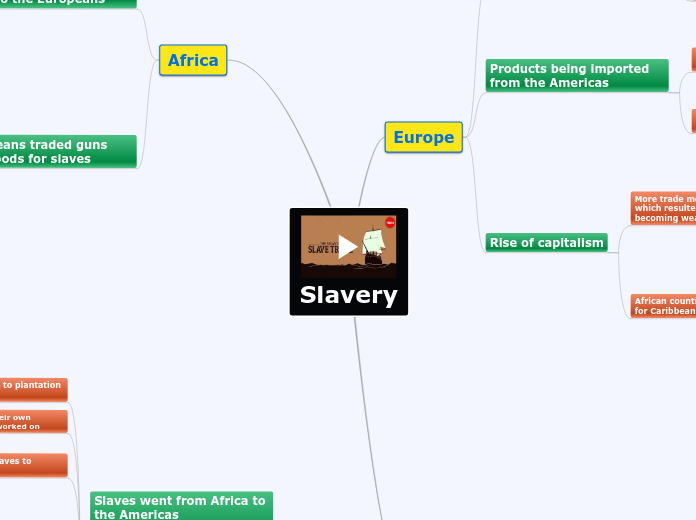Export promotion policies vs Import Substitution Policies
Import Substitution Policies
Cost of subsidies are more transparent than tarifs
Export Promotion Policies
Countries with comparative advantages are better
2006 World Trade Organization Report (Subsidies, Trade and the WTO)
Andrea Romero and Angie Yépez
Subsidies and the WTO
The Doha Development Agenda
General Agreement on Trade in Services
Negotiation mandate
Disciplines
Use of diseminatory subsidies
Agreement on Agriculture
Special treatment
Higher de minimis thresholds
Lesser (liberalization)
Different rules (reduction commitment)
Uruguay Roun Agreement
Anti- subsidy remedies
Multilateral
Dispute settlement
Unilateral
Producer
Consumer
Differential treatment
Concept of specificity
Definition of subsidies
Tokyo Round Agreement
Non- agricultural goods
Countervailing duties
Evolution of rules
Agricultural products
Exports Subsidies
Consultation
Subsidies to manufactured exports in developing countries
Subsidies
Definition
also
Affectation of prices
Provision of goods and services
Budgetary outlays
Subtema
Distinguish the recipients
subsidies
general
specific
Unrequited transfer
WTO agreement
Specificity
Forms of subsidy
Economic Analysis
Merits
Aware of the costs
Desirability
Why
International Perspective
WTO rules
Non- disruptive
Competitive threat
Severe effects
Nullify national welfare
Reasons
Who
Correct market failure
Theory
Policy objectives
Incidence (overview)
Hard to find comprehensive information
Addtional Sources
Notifications
WTO
Information
Requirements
Reports
National
International Data
Cross country comparability
Limited number of sectors
Variation in sectorial distribution
Countries
Developing Subsidies
Developed Subsidies
Incidence
In
Industry
Subsidies & GDP
Recipients
Fishing
Protection
Income support
Development
Substainability
Stable subsidies
Coal
restructing
development, energy security
Minning, steel, forestry
Specific
Automotive indsutry
Horizontal (fiscal incentives, policies, EPZs)
The Caribbean
Latinamerica
Audiovisual
Cultural objectives (policy instruments)
Promotion domestic content
Tourism
Infrastructure
Marketing Support SME
Financial Service
Tax Incentives
Equity injections
Objectives
Restructure
Keep banks afloat
Telecommunications
Universal Service Funds
Affordability
Availability
Universal Service
Transport
Security
Environmental
Railway
Universal Access
Measures
Developing
Tax incentives
Developed
Grants
Non- notifiable
Food aid
State- trading enterprises (market power)
Privilage
Price discrimination
Export credit, guarantees
Notifiable
AMS
Export subsidies
Distribution by commodities
Domestic support
UE, US, JAPAN
Reduction of commitments
Trade distorting
Minimis levels
Distortion
Exporters
Importers
Welfare loss
Providers
Bibliography
WTO. (2006). World Trade Report 2006 Exploring the links between subsidies, trade and the WTO. Retrieved from: https://www.wto.org/english/res_e/booksp_e/anrep_e/world_trade_report06_e.pdf
Learn Liberty. (28 ene 2015). Should We Subsidize Scientific Research? Retrieved from: https://www.youtube.com/watch?v=ozJHw9NrK4E
Thornton, R. (12 oct 2015). What are Subsidies? Retrieved from: https://www.youtube.com/watch?v=EhvimG6kSa0
Why Governments Subsidize
Others
Cultural heritage
Trade liberalization erodes national identity (subsidies helf not to)
Non- trade concerns
Non- commodities
Increasing commodities production
National security
Energy
Food
Environmental Protection
Useful for
Correct asymmentries
Facilitate adjustments of new environmental regulations
also with regulations, laws, tariffs, taxes
Distribution
To change the distribution of income in societies
on agriculture
for equality
Strategic Trade Policy
Secure national advantage in economies of scale
R&D intensive industries
Hurtful for active partners
Risk of dissipate funds
Production of Knowledge goods
State promotes Development and Research
Intelectual Property Systems
The government will need to invest in more resources
Benefical on a social perspective
Industrial Development
State intervention
Could not be as efficient as it should
Could lead to market failure
Control that the diserable investments are made
To develope industries
Services
Agriculture
The Economy had a lower growth in 2005
Terrorist Attacks
Effects
Tightened security
Some industries may be affected
The costs may rise
Localized and temporary
The impact of natural disasters
International arena
Foreign goods or services
Imports rise
Transportation bottlenecks
Major utilities may be disrupt
Important inputs may be short
Lack of production
Exports fall
National level
Tourism is not affected
Sri Lanka Tsunami in December 2004
Macroecnomic activity weakens
Depends on how
How integrated it is in the global economy
How tradable is the devasted sector
Could be
Considerable (in somes industries)
Notable
Consequences
Less than the preceding years
Reduced oil consumption of OCDE countries
Optimization of the energy
Low inflation growth
US dollar appreciation
improve its deficit
Japan stagnated
Decreased od US & Euro
due to
Investments in liquid assets
but in US bonds
Oil exporters invest more in goods than before
Time investment
Increased demand of
Increased wage
Slacking of product capacity
High oil prices
Trade in Textiles and Clothing
Royalties and Fee Payments
Are among affiliated companies
causing
Singapour, China, and the Republic of Korea
Increased loyalties and fee payments
High level of foreign Investment
East Asian economies got strong
Countries remain dominant in receipts and payments
faster than commercial services
The expiry of the agreement
Causing
Growing importance of developing countries
Ex: China
Lack of diversfications
The importance of Developed countries' market decrease.
Production declines
Replacement of domestic production by suppliers from lower income countries
UE largest economies below 2%
Lower percentage
UE destinations









